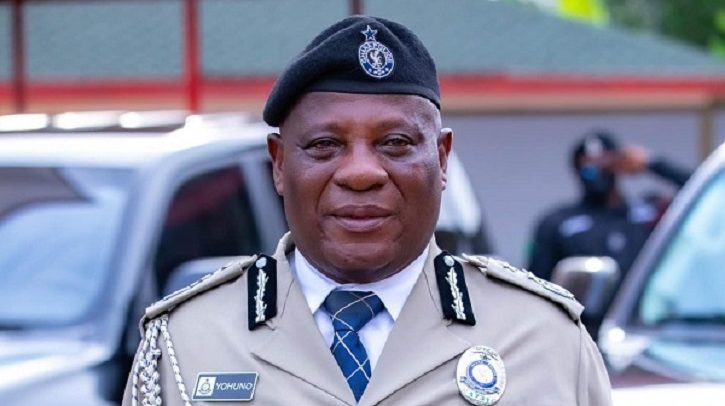IGP Christian Tetteh Yohuno
Ghana has long prided itself as the beacon of democracy in Africa—a nation where political transitions are largely peaceful, and the ballot, not the bullet, decides leadership. But the events surrounding the recent Akwatia by-election and, more importantly, the Inspector General of Police (IGP) disturbing silence on them, should serve as a national wake-up call.
The New Patriotic Party (NPP) has lodged a formal petition, backed by video and eyewitness accounts, alleging threats, physical assaults, and incitement to violence by senior executives of the ruling National Democratic Congress (NDC). The allegations are not trivial. They include direct threats against the Minority Leader, Alexander Afenyo-Markin; physical assault on NPP’s Alhaji Osman Masawudu; and violent utterances against other parliamentary leaders. These are not the actions of fringe actors; these are statements and behaviors attributed to national party officials.
Yet, the IGP, entrusted with safeguarding the rule of law, has remained unyielding, if not indifferent. No swift arrests. No public reassurances. No visible accountability. His silence, in this context, is nothing short of complicity.
The Dangerous Precedent of Inaction
This is not the first time Ghana has stared into the abyss of electoral violence. We remember 2008’s heated standoff, the 2012 election petition that tested the patience of millions, and the Ayawaso West Wuogon by-election of 2019, where violence left deep scars on our collective memory. Each of these moments taught us a painful lesson: democracy without law enforcement is fragile, and peace without justice is temporary.
When the police fail to act against violent conduct, they embolden it. Political thuggery becomes normalised. Threats against legislators today could become attacks on voters tomorrow. The very foundation of democratic participation—free and fair elections—crumbles under fear and intimidation. If unchecked, we risk drifting into an era where elections are determined not by ballots, but by brutality.
The IGP’s Duty to Ghana, Not Politics
The Inspector General of Police must be reminded that his constitutional mandate is to serve Ghana—not any political party or government of the day. His silence sends a dangerous signal: that there are two sets of laws in this country—one for ordinary citizens, and another for political elites. This perception erodes public trust, not only in the police service but in the entire democratic order.
Ghanaians are watching closely. The international community is watching too. A police service that fails to enforce the law without fear or favor undermines the very image of Ghana as a stable democracy.
A Call to Action
The IGP must act swiftly. He must ensure that:
A full-scale, impartial investigation into the allegations at Akwatia is launched.
Arrests and prosecutions follow, regardless of the political weight of those involved.
Regular public updates are given to reassure Ghanaians that no one is above the law.
Failure to do so risks plunging our nation into a cycle of impunity and violence that could haunt us in 2028 and beyond. The time for empty rhetoric is over—what Ghana needs is decisive action.
Conclusion
Silence is not neutrality. In the face of threats to democracy, silence is betrayal. If the police service cannot defend the rule of law when it matters most, then what is its purpose?
Ghana’s democracy is too precious to be toyed with. The IGP must rise above partisan pressure and demonstrate that the law is supreme. Anything less is a betrayal of the oath he swore and the peace generations of Ghanaians have fought to protect.
By Obaapa Frimpomaa


